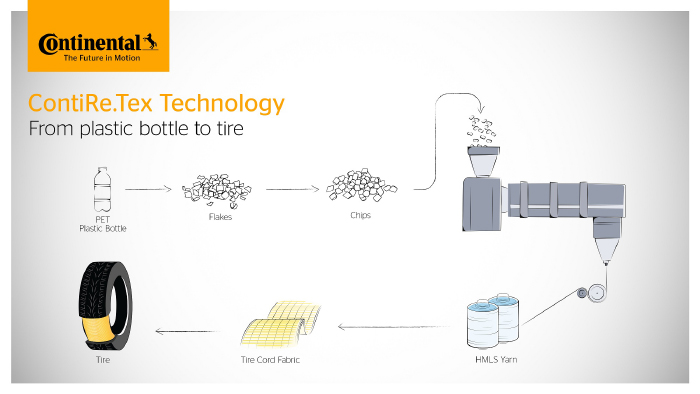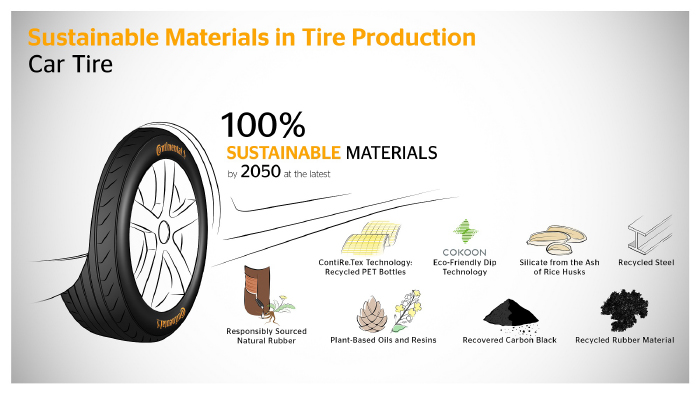Car tires are round, black and made of rubber. Look closer, however, and you’ll see that the design of tires and the interaction of the various materials that go into making them are extremely complex. But for some time now, the material experts and tire engineers at Continental have been bringing about a silent revolution. By 2050 at the latest, all tires are to be made of sustainable materials.

Claus Petschick, Head of Sustainability at Continental Tires, is clear about Continental’s mission, saying, “Continental is on the road toward becoming the most progressive manufacturer in the tire industry in terms of sustainability. We aim to use 100 percent sustainable materials in our tire products by 2050 at the latest.” He adds, “Our innovative power enables us to break new and even more sustainable ground. This encompasses everything from the origin and sourcing of our materials through to the reuse and recycling of our tires.”
Continental considers natural rubber a sustainable material only if it is sourced responsibly. And is industrializing the extraction of natural rubber from specially cultivated dandelion plants. Therefore, the company employs an integrated approach aimed at making the complex and fragmented supply chains for natural rubber more sustainable. Including using cutting-edge digital technology, local involvement and close collaboration with capable partners with the goal of improving transparency and traceability along the entire value chain.
Sustainable plant-based fillers
In addition to rubber, fillers such as silica are essential to tire assembly. Silica, for example, helps to optimize characteristics such as grip, rolling resistance and tire life. In the future, rice husks will be used as the source material for sustainably produced silica. Rice husks are a waste product of rice production and cannot be used as food or animal feed. Silica derived from the ash of rice husks is more energy-efficient when used in manufacturing than that obtained from conventional materials such as quartz sand.
Expanding the circular economy
Continental is aiming for fully circular operations in its tire production by 2050 at the latest. In addition to the use of renewable materials, the company is working systematically on using recycled raw materials in tire production. This is intended to ensure that carbon black – another crucial filler in rubber compounds – can be obtained on a large scale in the future.
Recycled rubber from end-of-life tires
Continental is also making use of mechanical processing of end-of-life tires. Rubber, steel and textile cord in particular are separated, in a highly sophisticated process, from one another.
Recycled plastic bottles in tire casing
Continental is also working with partners to obtain high-quality polyester yarn for its tires from recycled PET bottles. With its ContiRe.Tex technology, the tire manufacturer has developed a more energy-efficient and eco-friendly alternative that allows it to reuse between nine and fifteen plastic bottles for each tire, depending on the tire size.
Continental is working tirelessly to advance innovative technologies and sustainable products and services throughout its entire value chain, from sourcing sustainable materials to recycling end-of-life tires. The company is aiming to achieve 100 percent carbon neutrality by 2050 at the latest.


COMMENTS